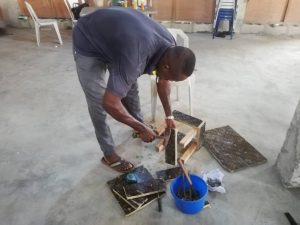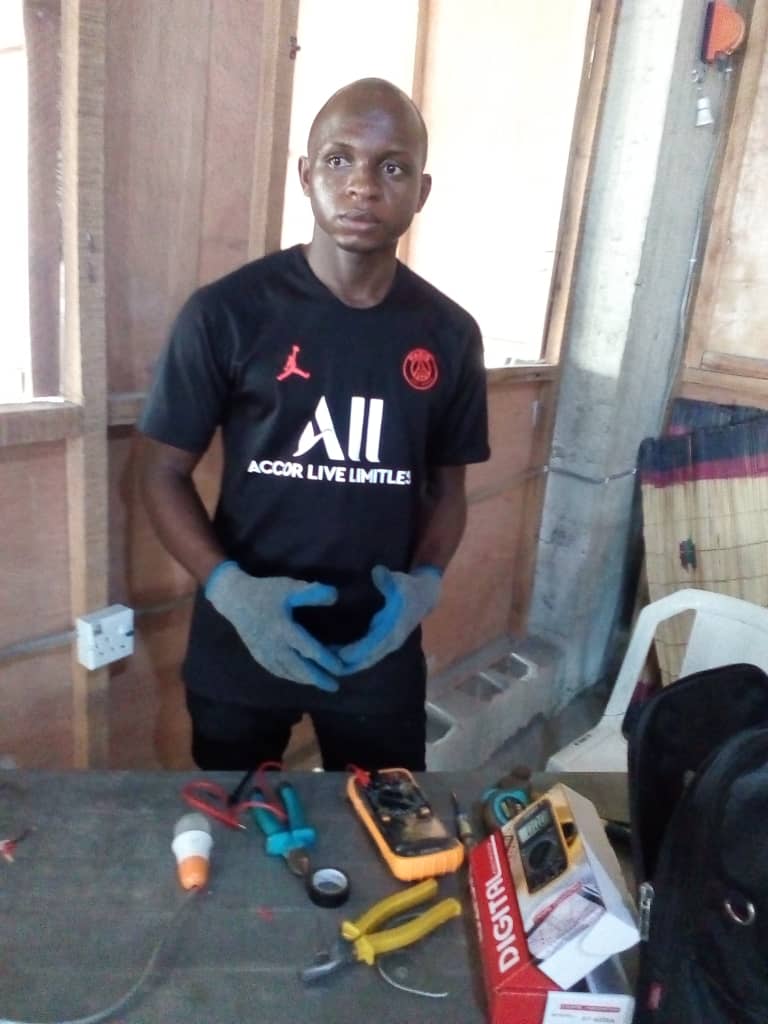As the world tries to wrestle COVID-19 to the ground and return to whatever “normal” life will be, people’s financial health and well-being continue to be at the forefront of the recovery.
New businesses create more jobs and introduce new ideas that solve problems in better ways. Entrepreneurship also makes the marketplace more competitive so that outdated thinking is challenged and doesn’t restrain society from growing and developing.
What are entrepreneurial skills? Entrepreneurship is ‘an individual’s ability to turn ideas into action. It includes creativity, innovation and risk-taking, as well as the ability to plan and manage projects in order to achieve objectives’
 Empowering other people puts out the positive vibes into the atmosphere that will be returned to you, not in any sort of karmic sense necessarily, but in terms of improving your own sense of self-awareness and confidence. This can be achieved in a number of little ways that can range from simply boosting someone else’s mood to helping them realize new aspects of their personalities. We are all in this life together, and helping others achieve their goals can get our own on track.
Empowering other people puts out the positive vibes into the atmosphere that will be returned to you, not in any sort of karmic sense necessarily, but in terms of improving your own sense of self-awareness and confidence. This can be achieved in a number of little ways that can range from simply boosting someone else’s mood to helping them realize new aspects of their personalities. We are all in this life together, and helping others achieve their goals can get our own on track.
The Empowerment Skills can be said to be of five kinds, namely: Life Coping Skills, Manipulative Skills, Intellectual Skills, Communicative Skills and Artistic Skills. These are natural skills which every organism including man, acquires from birth to adapt fittingly in his or its environment. It is a set of measures designed to increase the degree of autonomy and self-determination in people and in communities in order to enable them to represent their interests in a responsible and self-determined way, acting on their own authority.
There are seven (7) areas you can focus on that will help you shift toward being more proactive and thereby create a pathway to financial empowerment and breakthrough and be successful in life:
1. Focus more on the future.
There is a reason that the rear view mirror is smaller than the windshield: it’s more important to know what lies ahead. Because we know the past we dwell on it, and use it to make predictions. This is useful to a point, but it can also constrain our thinking to what we already know.
2. Take personal responsibility for your success.
In an age when everyone has to have a “sponsor” to help their career, it can become easy to allow yourself to take a personal back seat with your career or business. Make sure you always focus more on what you can do to be successful than on what others can do for you.
3. Think big picture.
It’s important to consider your ultimate goals. There will always be little things to worry about, but don’t get so lost in the minutia that you lose track of what you are really trying to accomplish.
4. Focus on what you can control.
When you do this you will have more time to think ahead. In addition, ruminating excessively about factors outside of your control will cause stress and harm your wellbeing.
5. Prioritize.
You can’t do everything, and if you try you will become reactive–bouncing from one item to the next. Focusing on a few big goals will lead to better success than focusing minimally on lots of goals.
6. Think through scenarios.
Focus on likely scenarios and create a plan. Plans can certainly change, but considering the most likely scenarios in advance will increase your chances of being prepared and remaining a step ahead of your competition.
7. Make things happen.
Don’t sit on the sideline and wait to see what happens. When you are proactive and take initiative into the unknown you may fail, but you will win more.
In the words of Barbara Coloroso, “The beauty of empowering others is that your own power is not diminished in the process. In fact, empowering other people puts out the positive vibes into the atmosphere that will be returned to you, not in any sort of karmic sense necessarily, but in terms of improving your own sense of self-awareness and confidence. This can be achieved in a number of little ways that can range from simply boosting someone else’s mood to helping them realize new aspects of their personalities. We are all in this life together, and helping others achieve their goals can get our own on track. Barbara went further to write in detail, 50 little things we can do to empower others. According to him, the following are 50 little things you can do to empower other people and get started down this path.
1. Give out compliments that you mean. Most people can see straight through a phony compliment, but if you think your friend looks especially nice today with that new hairstyle, tell her so. Just be open and direct in your interactions.
2. Speak and act with honesty. If you always speak with integrity and believe in your own words and actions, others will also pick up on this and mimic it, fostering an atmosphere of trust.
3. Listen to others. Always listen to what other people say. I used to zone out when others were speaking but now make a point of looking into their eyes and listening to their words, which has made a world of difference in personal interactions.
4. Help illustrate your points with visual aids. When leading a meeting or presentation, realize that many other people are visual learners.
5. Teach a class. If you have a skill or knowledge to share, why not teach your own class that helps spread it to others?
6. Get involved in community art projects. Artistic projects in the community are a great way to help get everyone involved in making the city a more beautiful place to live, instilling a sense of pride in all residents.
7. Mentor a child or student. Getting involved in one child’s life, especially if they are at-risk, helps you both make connections throughout your lifetime.
8. Volunteer with local organizations. These can be community discussion groups or of a more volunteer-oriented nature.
9. Lead a group on a travel expedition. My friend works for the local art museum leading groups of the elderly on art-oriented field trips around town and abroad, which helps everyone connect and learn something new.
10. Donate money to charity. If you have extra money, helping organize a fund for a pet cause helps bring the community together.
11. Help the spread of community health clinics. This can be done by volunteering yourself, or donating money. Either way, it can be vital in helping those who have problems affording health care to realize that they are still valued individuals and that their health matters.
12. Take the time to talk to strangers. That conversation that is simply small talk to you can mean a lot to someone else who is shy or feels that their opinion isn’t taken into consideration often enough.
13. Start a non-profit. This is a project that can be difficult but ultimately rewarding not only for you but for the others who become involved as well, helping you all to work together towards an ultimate goal.
14. Travel abroad and make new friends. Getting out there as an ambassador of sorts in the world helps you connect with others who may want to learn more about your culture but otherwise wouldn’t have the opportunity. This ends up being a learning experience for both parties involved.
15. Reach out to friends and relatives at a distance. If you have lost touch with loved ones, give them a call and let them know that someone is thinking of them.
16. Be aware of body language. Your body language sends a strong message to others, so be aware if you have your arms folded across your chest while you talk that you are shutting others out, for example.
17. Be sincere. Your sincerity will help to make people feel appreciated.
18. Nurture talent in others. If you notice someone has a talent that they aren’t putting to use, let them know. Gently offer suggestions of where they may go to learn more. If the child you are mentoring is constantly doodling, for example, get them signed up for an art class.
19. Go out and support local musicians. In every city there are unimaginable numbers of young struggling musicians who could be the next Beatles if given the chance. I’ve seen some amazing live acts recently by picking a name out of the listings and simply turning up in support.
20. Give thoughtful gifts. When giving gifts during birthdays or the holidays, take the time to think about what the person might really need or appreciate.
21. Join a community farm or grocery coop. Working together to provide fresh, sustainable food for the community is one of the hot trends in some community organizations.
22. Volunteer in schools. Though it might sound cliché, young people are our future indeed, and helping out in schools that are struggling financially can make a big difference in a young person’s life. Be a positive role model.
23. Stay in touch with local politics. Helping others get empowered means also being kept up to date with the latest in what is going on in your own town.
24. Throw dinner parties with a mixed range of guests. Get together a group of people who don’t necessarily know each other yet but you feel that their personalities might mesh well together. This is how we learn from one another.
25. Smile more often. There is an anonymous quote that states, “A smile confuses an approaching frown.”
26. Use public transportation. Not only is this better for the environment, but it gives you a chance to interact more with the community.
27. Organize recycling projects. This helps give back to the community and teaches people about the need to respect our natural environment, which is empowering for all.
28. Run a benefit event. Leading a team of volunteers; set up a means for raising money for a cause that you all are interested in. This can be a chain reaction, with the volunteer team then feeling more empowered to go a step further with its own charity efforts.
29. Project positivity and eliminate negative thoughts. This positivity will then be returned by others.
30. Join a book group or club. The exchange of ideas tends to be helpful for all people involved, and can spark new business or interpersonal ideas in between all of you.
31. Start or join a language exchange program. This helps foster feelings of competency in a foreign country for someone who may be feeling like an outsider, and also helps you build your own language skills.
32. Lead team-building exercises at work. This can go beyond old-fashioned trust falls to more imaginative retreats. My friend recently led his team out in a wild-mushroom foraging expedition, which was a unique way for them to learn something new as well as get to know each other, in a beautiful outdoor setting.
33. Encourage social activities. Get new social activities planned within your group of friends, your family, or in a larger community sense.
34. Initiate physical contact. In this society in particular, there is a hesitance to touch one another. By simply placing a hand on someone’s shoulder, you are helping to reconnect with that person.
35. Tell your loved ones how you feel about them. Don’t wait till it’s too late to let someone you love know how you feel about him or her. Life is wonderful but short.
36. Make sure the atmosphere at work is a democratic one. Let everyone’s opinion be heard, and be sure to give feedback to their ideas.
37. Nod your head when someone is making a point. A simple piece of non-verbal communication like this can help inspire someone to move forward in the discussion more.
38. Help foster creativity. If someone is talented, tell them so. Andy Warhol was notoriously shy as a child and perhaps would never have branched out to become the powerful artist he is now known as if someone had not said a few words of encouragement to him in his early art classes.
39. Run meetings with an open, discussion oriented atmosphere. Whether at work or in a larger community sense, let everyone know their opinion is valued.
40. Have suggestions ready for those who need advice. This means taking the time to think about your own behavior, past mistakes, and how you’ve moved forward. With this information in hand, you will be well equipped to advise others.
41. Take walks to new areas of town. I’ve met some of my good friends by simply walking around in their neighborhood and having to ask for directions.
42. Spend time planting trees in the community. This helps improve the overall beauty and positive feelings in the city, instilling a sense of pride in other residents.
43. Set up a food or blanket drive. This helps others in the community and empowers the other volunteers by letting them see they can make a difference.
44. Learn inspiring quotes that can be doled out. As Bill Gates once said, “The vision is really all about empowering workers.”
45. Learn new listening techniques. This can be a combination of proper responses and cocking your head at the right time to show someone else their opinion matters.
46. Study psychology. A friend of mine went back to school to be a psychologist in order to reach out to people on a scientific level, but even a few basics of human behavior are both interesting and can help you be more effective in interpersonal communications.
friend of mine went back to school to be a psychologist in order to reach out to people on a scientific level, but even a few basics of human behavior are both interesting and can help you be more effective in interpersonal communications.
47. Give a helping hand. Whether it’s helping someone who fell to get back up, or picking up something that spilled in the supermarket, it shows you care, which is empowering.
48. Give encouragement instead of criticism. Dale Carnegie said, “Abilities wither under criticism; they blossom under encouragement.” Every one of us has the magic power of empowering other people simply by generously giving praise and showing encouragement instead of criticism to help them realize their potential.
49. Take time for yourself to help others. By taking the time to sit and reflect upon my own actions each day, I find I’m better able to mentally be available for others when out in public or at home with my family. You can do the same.
50. Learn intervention techniques. In the event that someone you know is struggling with addiction, this is a way to help them get over it and empower themselves to get back on track.
There are three levels of competencies, which all entrepreneurs need, to be successful in life:
- Personal competencies: creativity, determination, integrity, tenacity, emotional balance and self-criticism.
- Interpersonal competencies: communication, engagement/charisma, delegation, respect.
- Business competencies: business vision, resource management, networking, negotiating skills.
Though the key take away from this Idea is that entrepreneurship can be learnt by anyone, it’s not something that can simply learn in a classroom. Even once key business knowledge has been acquired, the entrepreneur still has to learn how to use it in practice – something that can only be done through practice. In this respect, ‘leaning by doing’ is useful.
Being enterprising and entrepreneurial involves spotting an unexploited opportunity and making the most of it: essentially, identifying a gap in the market and filling it. However, it can also be about trying something new or improving a process to increase efficiency or boost results.












